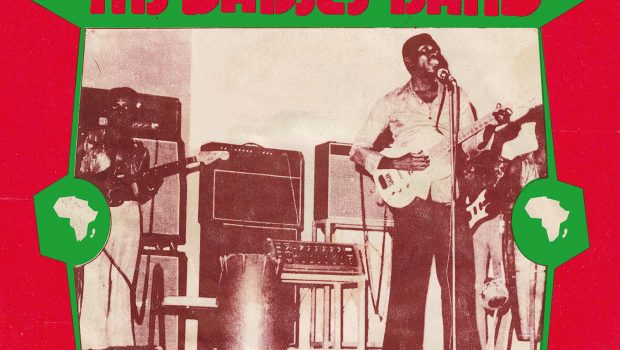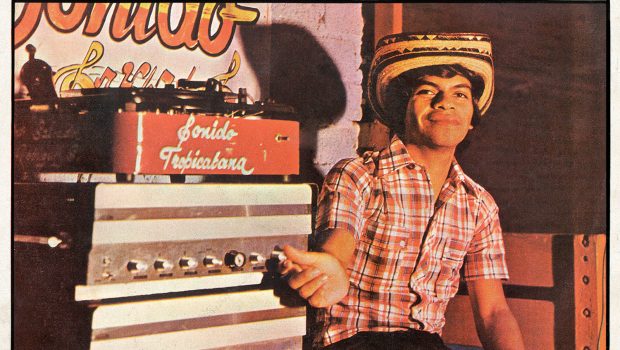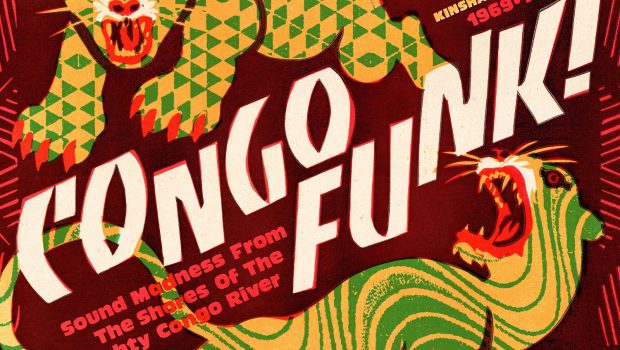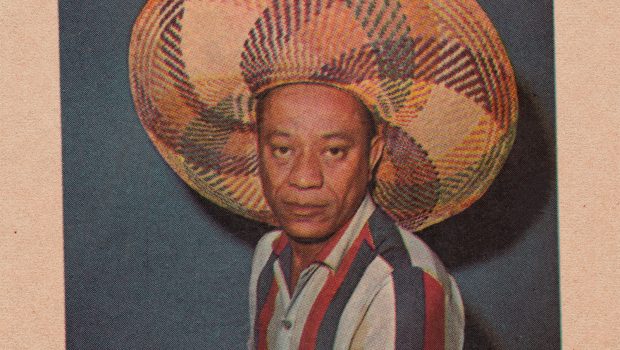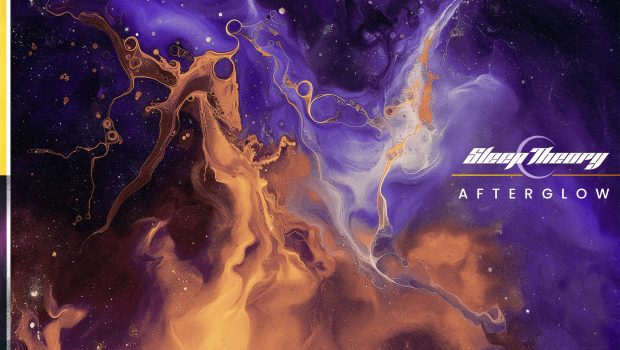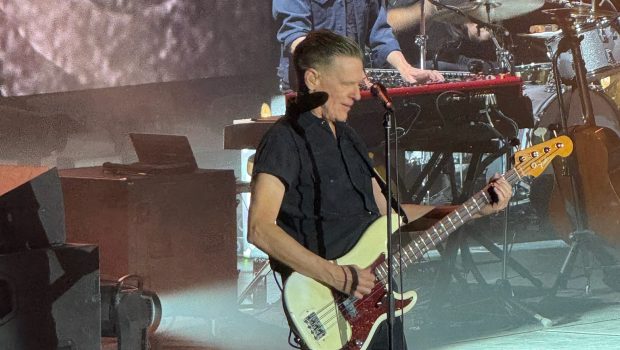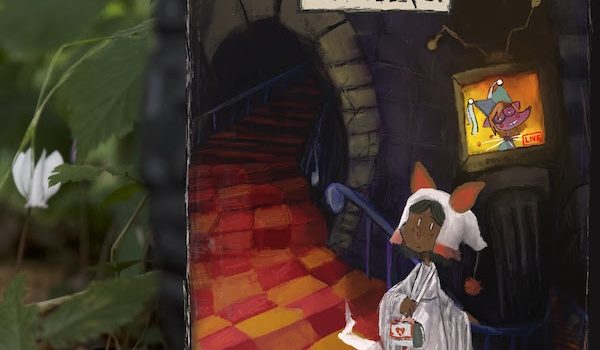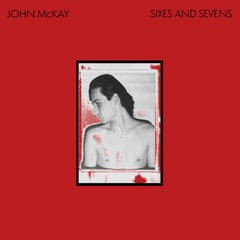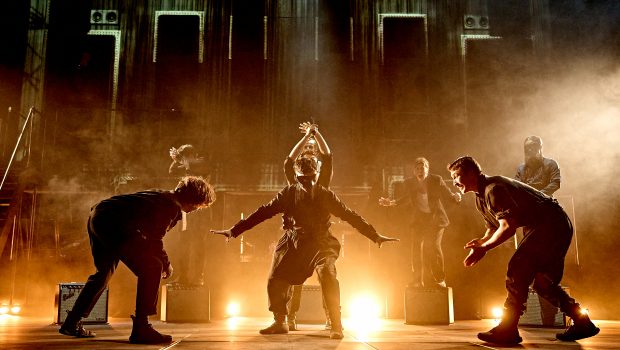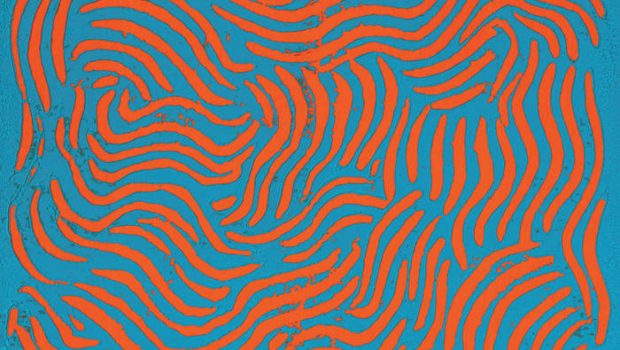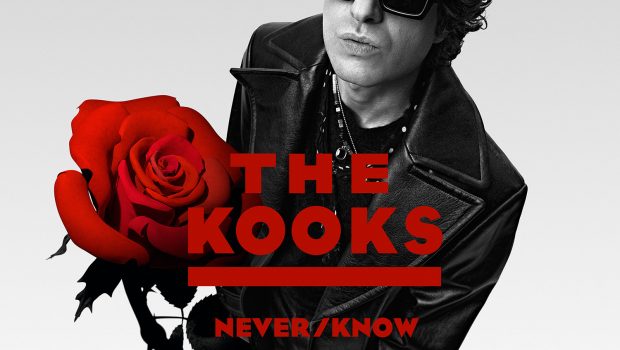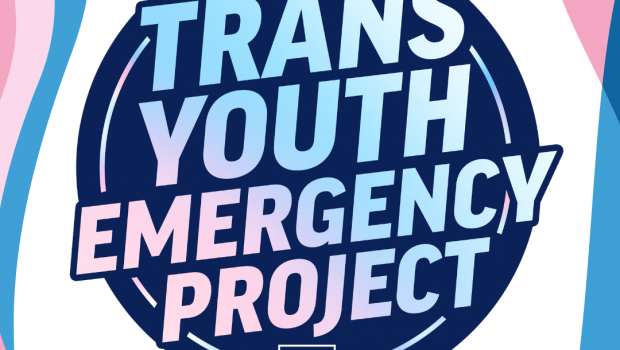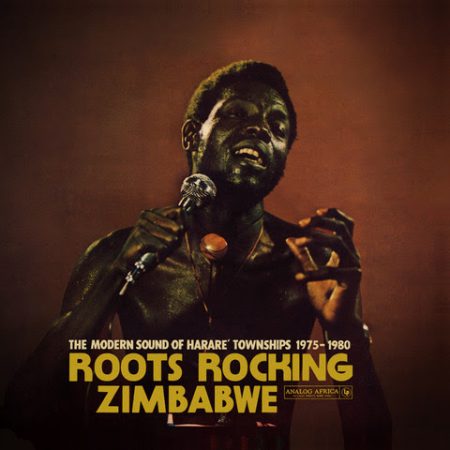 Like many other people of my generation, hearing bands from Zimbabwe, especially The Bhundu Boys, on John Peel’s radio shows in the 1980s was a revelation. It served as an introduction to music from around the world distinct from the Anglo-American diet that ruled the airwaves. The joyful guitars and rhythms were a marked contrast to the angst and anger filled sounds that constituted British independent music of the time which was admittedly an approach in keeping with my ennui-filled teenage mood.
Like many other people of my generation, hearing bands from Zimbabwe, especially The Bhundu Boys, on John Peel’s radio shows in the 1980s was a revelation. It served as an introduction to music from around the world distinct from the Anglo-American diet that ruled the airwaves. The joyful guitars and rhythms were a marked contrast to the angst and anger filled sounds that constituted British independent music of the time which was admittedly an approach in keeping with my ennui-filled teenage mood.
However, being introduced to Zimbabwean music a decade later in the mid-1990s had a far more significant impact upon Samy Ben Redjeb. He quit his job, booked a flight to Johannesburg in neighbouring South Africa and caught a bus to the Zimbabwean capital, Harare, to investigate the music scene. With a dream of starting a record label dedicated to Zimbabwean releases similar to Buda Musique’s Ethiopiques series, he obtained a job as a flight attendant with a German airline to fund his music crate digging trips to the country between 2001-2005. By 2006, he had founded the Analog Africa label and issued its first release by The Green Arrows, the kings of Harare nightlife. Subsequent releases on the label took in music from throughout Africa before expanding its remit to include sounds from South and Central America. With Analog Africa 41, Ben Redjeb returns to his first love, curating a collection of rock, rumba, soul and traditional grooves from Zimbabwe.
The compilation covers the period 1975-1980 directly prior to independence when the country was under the leadership of the white Ian Smith and was known as Rhodesia with its capital called Salisbury. It operated a policy dubbed as “apartheid light”. As a consequence, whereas under the South African regime artists were not able to perform with fellow musicians who did not share the same skin colour, in Rhodesia a mingling of the races was “tolerated.” Thus, South African promoters were able to sidestep the racism within their own country by choosing Rhodesia as the site of some of the earliest African music festivals. The music produced was quite a hybrid. With the DJs on the Rhodesian Broadcasting Corporation playing mainly rock music (initially The Beatles and The Rolling Stones, then heavier sounds like Led Zeppelin and Jimi Hendrix), this seeped into the local music with bands playing a mix of rock and Congolese rumba. Mbaqanga, also known as township jive, then became prevalent. It was an umbrella term given to a blend of Malawian, Mozambiquan, Rhodesian and South African beats that combined with jazz. In addition, soul was becoming increasingly popular due to its association with the civil rights movement in the United States and contributes to the mixture that makes up this 25-track, 77-minute compilation. In hindsight, it is easy to see that it was this combination of more familiar American influences with traditional music that made for an enticing introduction to global sounds for Western audiences.
Thomas Mapfumo was a major figure in the scene and his influence continued post-independence. He was formative in transforming traditional Shona music into dance rock and was synonymous with “chimurenga” which means “struggle” in the Shona language. Songs of this type were written to encourage people to support the freedom fighters in the liberation struggle. Mapfumo’s popularity brought him to the attention of the Police Anti-Terrorist Unit who arrested and imprisoned him. His track with The Acid Band, ‘Chiiko Chinotinetsa’ (‘What is it that Troubles Us?’) opens the album in scintillating style with its energising guitar style. He also formed Blacks Unlimited who feature twice with the soulful ‘Hangaiwa’ which is full of beguiling flute and a bluesy guitar break, and the solid pop groove of ‘Yarira’.
One of the most heavily represented acts and justifiably so are New Tutenkhamen. They were forerunners of mbira music which had previously been confined to rural areas. It was an attempt to duplicate the sound of traditional instruments, mbira and hosho, the latter a kind of traditional maraca, on electric guitar and drums. Their three tracks display their range: the rawness of ‘Amai A Kwatu’ with organ runs, horns and a percussive crackle; the English language ‘Joburg Bound’ which is more pop oriented; and the funk and soul groove of ‘Kumalila Ngwenya’.
Gypsy Caravan were teenagers at the time of recording and their youthful enthusiasm comes across through the ebullient guitar and organ sounds of ‘Soweto Mujihba’ (‘Soweto Fellow’), the story of a man nicknamed after the South African township because of his style. Their other track, ‘Chistiuiti’, has a bass growl and barely controlled organ that would fit snugly on a Nuggets compilation.
Echoes Limited travel in a funky direction on ‘Soul Scene’ while ‘Engelina’ is stripped back, emotional rhumba even though the words were in Portuguese, a language they did not understand. The lyrics were learnt by ear and display music’s power to have meaning beyond the literal words.
Understandably chosen as the first single to be released from the compilation, Oliver & the Black Spirits’ ‘Anoshereketa’ is an infectious blend of light-filled guitar and the regional beats (Mbakumba, Nhxuzu, Katekwe and Jerusalema) that he deploys. Oliver Mtukudzi also appears on an even more exhilarating track, a duet with his sister as Melody & Bybit, ‘Kwakaenda Imbwa’.
No Analog Africa Zimbabwe compilation would be complete without The Green Arrows who started it all for the label. The fuzzed-out guitars of ‘The Towering Inferno’ (a tribute to the Hollywood blockbuster) are immense while the instrumental ‘No Delay’ was also inspired by a film, ‘Bullitt’, and has twangy guitars to the fore.
A number of acts only get one track on the album but provide their share of highlights. Tineyl Chikupo of Mawonera Superstars was a pioneer credited with modernising Jit, the style with which The Bhundu Boys were later associated. Their track, ‘Nyamutamba Naziwere’ buzzes with joyous guitars and complex but invigorating rhythms. Zambian group WITCH, an acronym for We Intend to Cause Havoc, are one of the best-known groups on the compilation and are still recording new material and touring the world, their ‘Funky Reggae’ has a title that precisely describes its sound. The Harare Mambos were the first local band to appear on white dominated television in the late 1960s, although the presenter could not use their name because of its township associations. Their ‘Shanga Yangu’ has a delightful mid-song shift transforming it from slow and vaguely mournful to upbeat and a dancefloor filler. Dagger Rock Band brought heavy rock influences with them and ‘Viva Zimbabwe’ which was written during the transitional period when independence had been won has big riffs, energy and fuzzed out guitar.
‘Roots Rocking Zimbabwe’ provides a vivid picture of a country in a state of flux, about to win independence but blissfully unaware of the different struggles to come. The country’s position meant a unique set of influences infiltrated the music scene. This meticulously curated compilation, which includes a detailed booklet setting the musical and political context, captures the vibrancy of the music scene and is guaranteed to inspire new love affairs with Zimbabwean music.
Various artists: Roots Rocking Zimbabwe – The Modern Sound of Harare Townships 1975-1980 – Out 2 May 2025 (Analog Africa)
